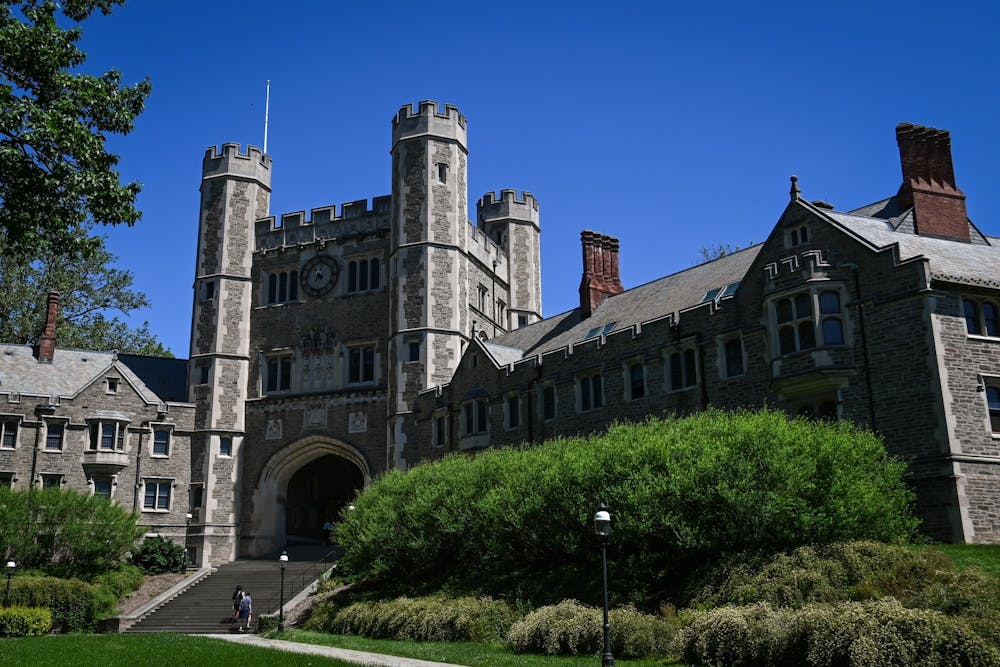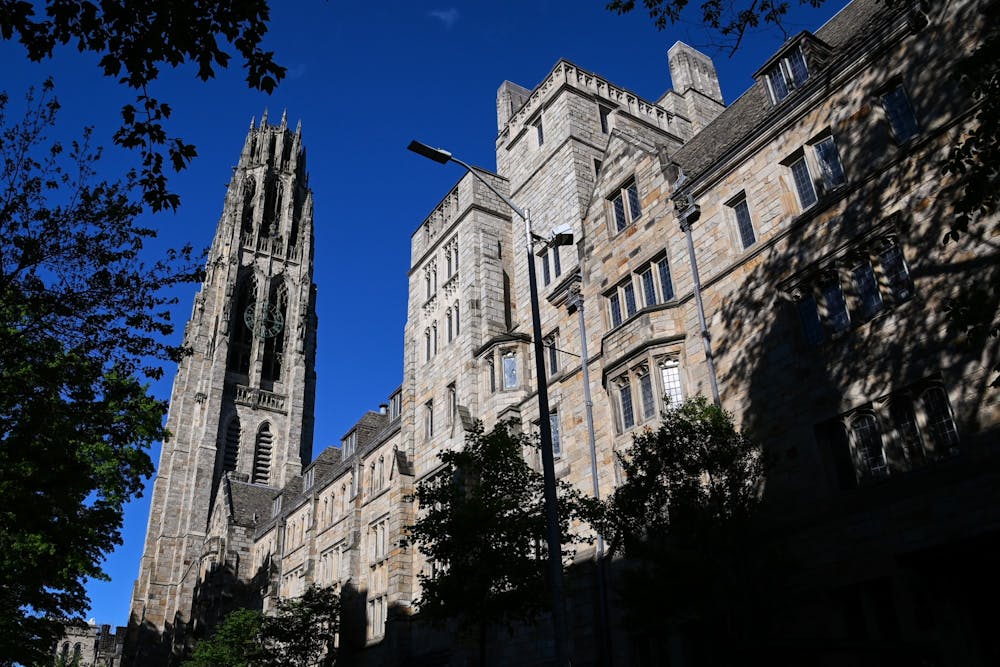
Princeton University recently made the decision to rename two of its buildings in response to the Black Lives Matter movement.
Credit: Kylie CooperSeveral Ivy League universities are coming to terms with their connections to slavery as Black Lives Matter protests sweep the nation.
Institutions such as Penn, Yale, and Princeton have deep-rooted ties to slavery and other discriminatory practices, prompting students to call on their schools to address and denounce their pasts.
On Saturday afternoon, Princeton University announced that former United States President Woodrow Wilson’s name will be removed from its public policy school and its residential college due to Wilson’s “racist thinking and policies.”
Wilson, a segregationist and 1879 Princeton graduate, is believed to have supported the ideas of the Ku Klux Klan, The Washington Post reported. During his tenure as President, he oversaw the resegregation of many agencies of the federal government, Vox reported.
W.E.B. Du Bois, who came to Penn's Sociology Department in 1896 to conduct his groundbreaking research on Black neighborhoods in Philadelphia, wrote in a 1913 open letter to Wilson that, "not a single act and not a single word of yours since election has given anyone reason to infer that you have the slightest interest in the colored people or desire to alleviate their intolerable position."
Princeton previously rejected demands to remove Wilson’s name from the residential college and policy school in 2016, months after nearly two hundred students occupied University President Christopher Eisgruber’s office during a 33-hour sit-in, demanding Princeton improve the social and academic experiences of people of color — particularly those of Black students.
In his statement, Eisgruber wrote that the Princeton University Board of Trustees reconsidered its decision to keep Wilson’s name due to renewed attention to the history of racism in the U.S., brought on by nationwide protests over the recent police killings of George Floyd, Breonna Taylor, and many other Black individuals.
Princeton's Woodrow Wilson School of Public and International Affairs and Wilson College will be renamed the Princeton School of Public and International Affairs and First College, respectively.
Similar to demands at Princeton, students at other Ivy League institutions have been petitioning their schools to re-address their historical ties to racist practices, in the hopes of affecting present change.
After far-right media pundit Ann Coulter stated that Yale’s namesake Elihu Yale was a slave owner and slave trader in a June 17 op-ed, calls to “#CancelYale” quickly spread through social media.

The demand first surfaced on the bulletin board website 4chan on June 10 as a way to cheapen the largely liberal university’s brand, Yale Daily News reported. After Coulter's op-ed, individuals from across the political spectrum joined calls to rename Yale to either retaliate against the namesake's ties to slavery or to mock political opponents and cancel culture.
Yale President Peter Salovey told Yale Daily News on June 25 that the University is not considering changing its name.
Like Yale, Penn has long been criticized for its connections to slavery.
In 2018, students in the Penn & Slavery Project independent study, supervised by history professor Kathleen Brown, presented evidence that linked several of the University's leading figures to involvement in the slave trade, and also showed the financial benefits Penn reaped from slave labor.
While there is no evidence that Penn has owned slaves itself, through property tax records and archival research, the Project provides information that suggests 18th Century Trustees and University faculty members owned enslaved people.
Penn President Amy Gutmann wrote in a June 28, 2018 statement that 75 former University trustees were slave owners, including Penn’s first Provost, William Smith. Penn also paid a professor for the labor of his enslaved man, and sent faculty members to raise money for the University from slave-owning families.
Rising College senior Dallas Taylor, project manager for the Penn & Slavery Project, said George Whitefield, who has a statue in the Quad, was an advocate for the institution of slavery. Taylor believes the statue should be taken down.
Whitefield campaigned for Georgia to allow slavery within the colony in the 1740s after realizing it would benefit his orphanage business and the colony as a whole, according to the Penn & Slavery Project.
“[Whitefield] pretty much got slavery back on the map in Georgia,” Taylor said.
Taylor said the Penn & Slavery Project put pressure on the University by uncovering its associations with slavery, adding that the connections are “mind-boggling.”
Amid nationwide demands to remove symbols of white supremacy, Police Free Penn has recently called on the University to remove all campus statues, portraits, monuments, and building names that portray people who once were involved with or endorsed violence against Black, Indigenous, Asian, and Latinx people, Police Free Penn’s public statement read. The statement also demands the abolition of campus police forces and divestment from the Philadelphia Police Foundation, among others.
More than 14,000 people have signed a petition, which was created on May 31, demanding that Penn end its relationship with militarized local police forces and reform aspects of University policing measures on campus.
The Daily Pennsylvanian is an independent, student-run newspaper. Please consider making a donation to support the coverage that shapes the University. Your generosity ensures a future of strong journalism at Penn.
Donate






